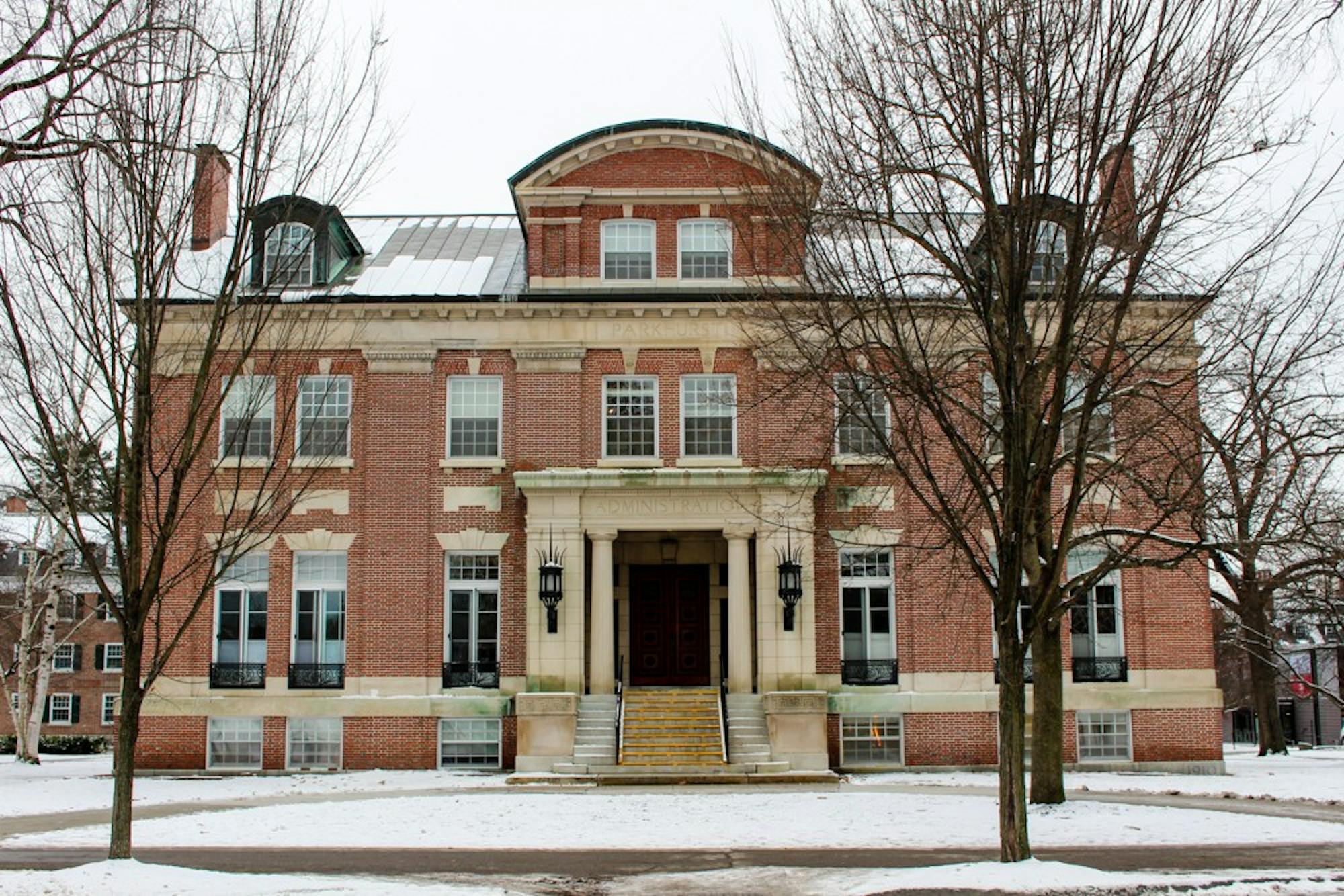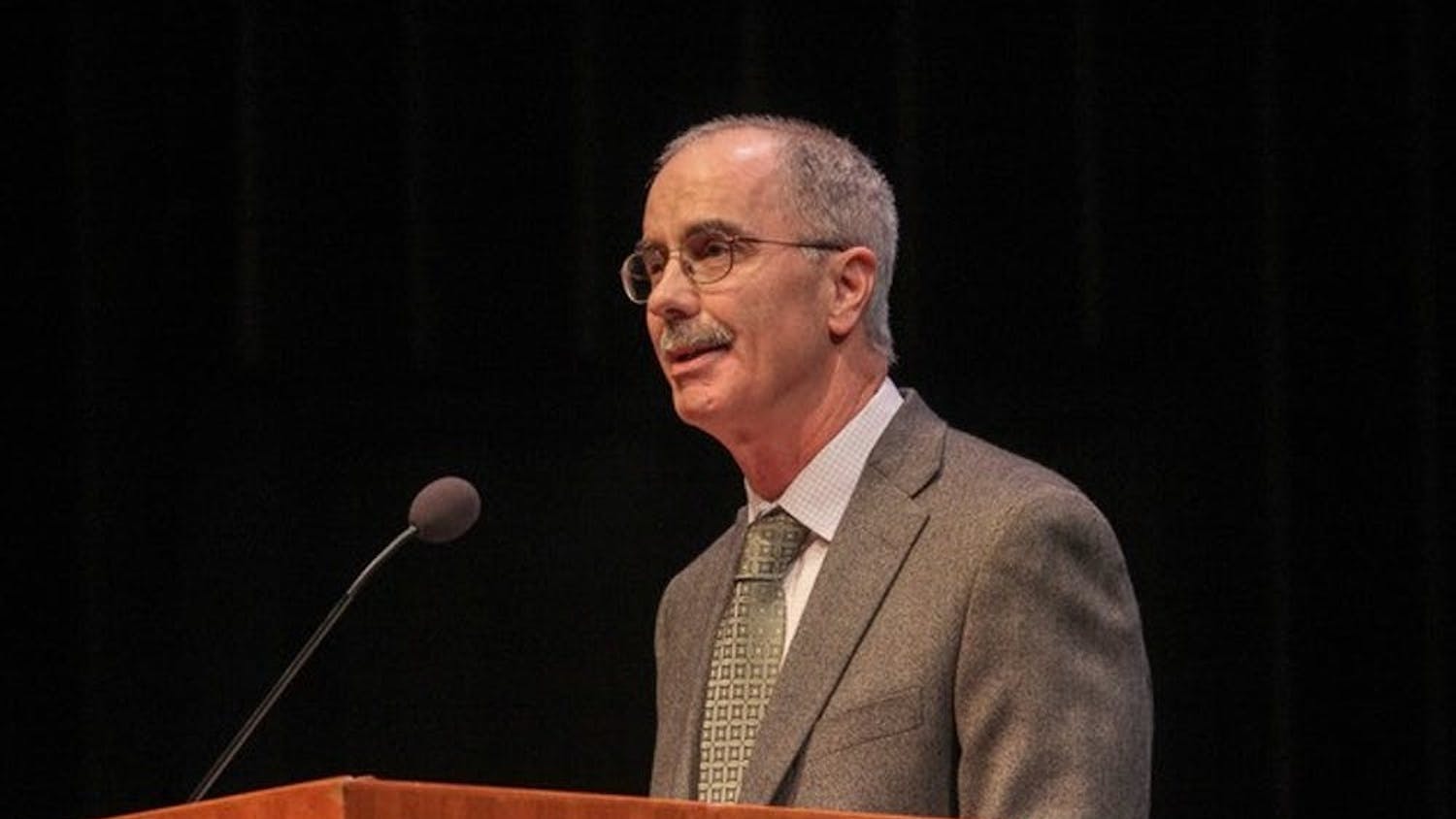College President Phil Hanlon announced plans for a “Dartmouth Budget Project” on Nov. 4 at a meeting of the general faculty.
The project, designed to take a deeper look into the College’s current spending and possible revenue opportunities, is intended to help prepare the College as it faces new costs. These include infrastructure upgrades to account for deferred maintenance in upcoming years and possible external threats, such as an economic recession.
In an interview with The Dartmouth, Hanlon said the introduction of the Dartmouth Budget Project is not out of concern for the College’s current financial situation — which he described as “stable” — but instead out of a desire to look responsibly toward the financial future of the institution.
“We are in a very stable position right now,” Hanlon said. “We have been running modest surpluses the last several years. This [project] is about looking responsibly to the future and looking at the investments we need to make to remain excellent.”
According to Hanlon, such investments would support the student experience by supporting projects like the infrastructure of residence halls and mental health services. Hanlon also focused on the importance of investment in renewable energy and overall campus infrastructure in the years to come.
“Our commitment is to reduce CO2 emissions by 20 project by 2025 — we are modifying the heat delivery system from heat to hot water,” Hanlon said, referring to two of the Dartmouth Green Energy Project’s goals. “This project is really about looking ahead, estimating those investments and making sure in advance that we have the financial capacity to carry them out.”
One major upcoming cost that the Dartmouth Budget Project will seek to mitigate includes critical, campus-wide infrastructure repairs, specifically relating to the College’s heating system.
“There is an urgency, because our steam tunnels are failing,” Hanlon said. “They were put in 100 years ago and updated 50 years ago, so they are not going to last. Hot water is much better than steam — you don’t lose as much energy in transit as you do with steam.”
Hanlon pointed out that the College has historically under-invested in “deferred maintenance,” which affects the quality of the College’s dormitories.
“Over many, many decades, we have not set aside funding in our budget [for building maintenance],” Hanlon said. “You see that in some of the buildings which have been aging, including some of the dorms. That’s why that kind of investment is important.”
Hanlon said the Dartmouth Budget Project will have three main components, each handled by a different team: one team will focus on revenue opportunities, one team on cost structure and the last team on consultation and communications.
Dean of the College Kathryn Lively is a member of the team investigating the cost structure of the College. In an email statement, Lively echoed Hanlon’s vision for the plan.
“The two largest ticket items are any changes that we decide to make to the power plant and the much needed residential renovation sequence — that is, renovating and updating our undergraduate residential facilities,” Lively wrote. “Both of these are incredibly expensive and absolutely essential in terms of our ability to maintain our institutional goals.”
Hanlon said that according to a reasonable estimate of costs and revenues adjusted for inflation, the College’s current budget path is sustainable. However, given goals to improve the student experience, among other expenditures, the College will require additional resources beyond what the baseline budget provides.
Hanlon pointed out that, unlike some peer institutions that make substantial revenue from college athletics earnings, Dartmouth will look elsewhere for funding.
One possibility, already employed by several peer schools, including Harvard University, is the expansion of non-degree educational programming, according to Hanlon.
“Some of our peers create a lot of revenue in educational programs, including non-degree educational programs: Harvard Extension [School] is a good example,” Hanlon said. “It has the Harvard brand and the Harvard moniker. It is non-degree programming but it helps the campus out financially through its surpluses.”
Hanlon said it could be beneficial to also look at what sort of degree-granting programs the College could offer that are both of value to the participants and might bring the institution net revenue. He said such an investigation will be a task of the team dedicated to possible revenue streams.
Hanlon also said that “The Call to Lead” capital campaign will cover some future investments, as well as budget reallocations like the $17 million which has been shifted in recent years from “central administrative operations” to the “academic enterprise.”
According to Hanlon, some other institutions gain substantial revenue from academic medical partners. Dartmouth does with the Dartmouth-Hitchcock Medical Center, but to a lesser extent relative to peers.
“Our main clinical partner is Dartmouth-Hitchcock, and Dartmouth-Hitchcock is generous in partnering with us to support our medical school,” Hanlon said. “But given the payer-base here in northern New England, they probably aren’t going to achieve the kind of financial surpluses that some other places have in their hospitals.”
Lively wrote about the importance of the Dartmouth Budget Plan as it relates to the wider economic and social landscape.
“Nationally, we’ve enjoyed a relatively long period of economic stability, but there is always the possibility of an external threat — say a recession — that is outside of our control,” she wrote. “We also, like institutions around the country, are faced with the challenge of ever-increasing costs. Given that we are a small institution with a limited number of students, we need to be constantly looking inward in order to make sure we’re operating in ways that will allow us to remain both competitive and sustainable over time.”
Vice president for communications Justin Anderson stressed the importance of community involvement with the Dartmouth Budget Project.
“We want this process to be driven by the community,” Anderson said. “We want the community’s best ideas for revenue-generating opportunities and cost savings, and we want people to feel like they have some ownership over what the ultimate decisions end up being.”




